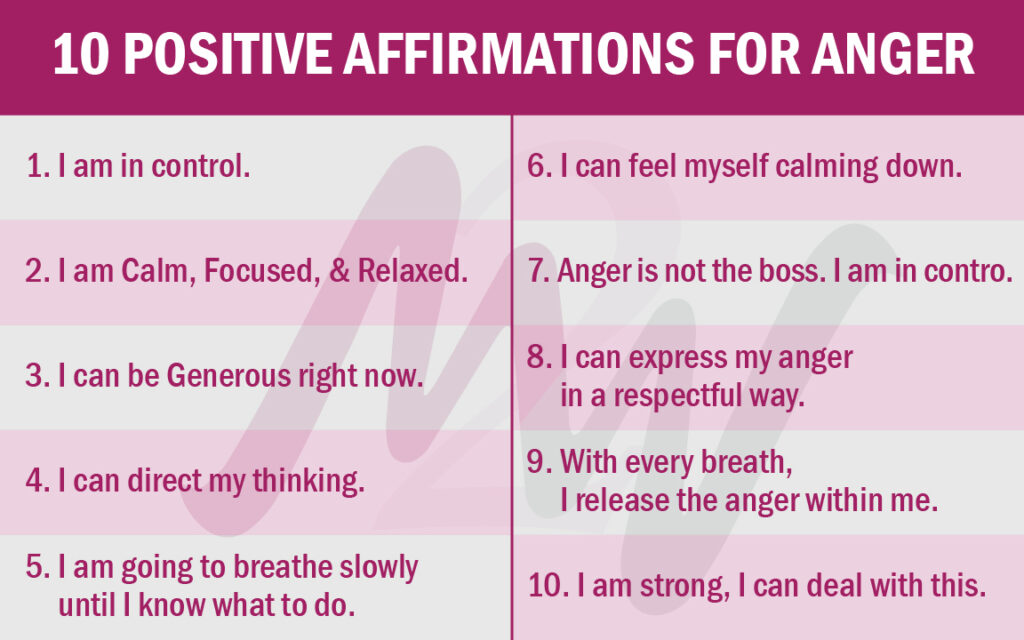The entire credit for the article, I am writing today goes to an incident in my friend’s life. My friend and his wife are very close to ending their relationship. And the credit for his big step goes only to his anger. However, it is beyond the understanding of both of their parents that even anger can become a reason for divorce. But, sometimes, our anger and frustration are caused by very real and unavoidable problems in our lives. For the most part, not all anger is wrong, and it is often a healthy, natural response to facing our difficulties. But it is also a bitter truth that uncontrolled anger takes a toll on both your health and relationships. Therefore it is very important to learn how to control anger.

What is Anger?
Well, we all know very well what anger is, and mostly we all have felt it: whether as a slight irritation or as full-blown rage. However, anger is a completely normal, generally healthy, human emotion. But when it gets out of control and becomes destructive, it can cause a variety of problems, such as problems at work, in your personal relationships and even in your overall quality of life.
However, it would not be correct to say that anger in itself is a mental illness; it is not at all linked to mentality. But in some cases, when anger becomes excessive, it can be linked to mood disorders, substance use disorders, and other mental health conditions. In today’s world, mastering how to control anger through anger management has become an essential skill.

Effects of anger on the human body:
Chronic anger that flares up constantly or goes out of control can be seriously detrimental to your physical and mental health, and even your career and relationships. For example, when it comes to physical health, chronic high levels of anger increase mental stress and make you more susceptible to heart disease, diabetes, weakened immune system, insomnia, and high blood pressure.
On the other hand, when it comes to mental health, chronic anger drains a lot of mental energy and makes your thinking fade, making it more difficult to concentrate or enjoy life. Humans become victims of mental stress, depression, and other mental illnesses. Because of all this, what can we expect in terms of a successful career or a loving relationship? Persistent anger creates lasting wounds in the people you love most and becomes a hindrance to friendships and work relationships. Explosive anger makes it difficult for others to trust you, speak honestly, or feel comfortable and installs a permanent fear of you in the other person’s mind. As a result, he never opens up to you.
While uncontrolled anger can often lead to aggressive behavior, anger management uses a variety of techniques to help a person deal with thoughts, feelings, and behaviors more healthily and productively. With this, you can stop your anger from dominating your life.

Remedies to control anger (Anger Management):
It is undoubtedly true that controlling your temper is a great challenge. learning how to control anger and express it appropriately helps you build better relationships, achieve your goals, and live a healthier, more satisfied, and happier life.
However, you cannot get rid of or avoid the reasons or people that make you angry, nor can you change them, but you can learn to control your reactions. The goal of anger management is to relieve both your emotional feelings and the physical arousal caused by anger. Here are a few helpful remedies from anger management on how to control anger?:

First of all, understand your anger
It is very difficult for average people to understand their anger. Understand this, anger is an emotion like any other emotion, and the first step towards being able to control any emotion is to understand why it happens.
Many people use anger to hide other emotions like fear, insecurity, inadequacy, or embarrassment. Whenever you start feeling angry, look behind your anger to see if you can identify what you’re feeling. Once you recognize the emotion, you will find it easier to express it more appropriately.

Identify possible solutions
Whenever you feel the angriest, try to focus on whether that reason is so big that it can take away your humanity from you. Instead of losing yourself in anger, try to focus on solving the problem that is causing you to feel so angry.
Whenever you get free time (even if it is just a little time), talk to yourself. The quiet time in the morning and the quiet time before sleeping at night are the best times that you can take out just for yourself. Try to write about yourself or whatever you like at that time. Spend quality time with your family. Try to have one meal at a time while sitting peacefully with them. Or agree to eat out yourself a few times a week. Recognize that certain circumstances are outside of your influence. Try to be realistic about what you can change and what you can’t. Always remember that anger never fixes anything but can make every situation worse.

Think before you speak
Understand this sentence in such a simple way that you give yourself time before saying anything in anger. In the heat of the moment, it’s easy to say something that could easily hurt the other person. And for which you have to regret later. Always try to take a few moments to collect your thoughts before saying anything, think a little, understand, and then speak. This is indeed very difficult to do but not impossible. This habit can be adopted with repeated practice. Wait until your anger subsides and then express yourself in a calm and collected manner. Keep yourself strong, do not let anger dominate you.
As soon as you are calm and clear, express your frustration in an assertive but non-confrontational manner. This will not hurt others, and they will not feel as if an attempt is being made to control them. All you need to do is state your concerns and needs clearly and directly. You may even allow other people involved in the situation to do the same.

Stay away from triggering situations
One of the best anger management exercises is to, if you can, remove yourself from the situation that makes you extremely angry. Take a look at your regular routine and try to identify activities, times of day, people, places, or situations that trigger feelings of irritability or anger. Try to understand how these situations affect you. This can help you take control of your environment and avoid unnecessary stimulation. When you identify your triggers, think of ways to avoid them or approach situations differently so they don’t bring your blood to boil.
Walking away from a provoking situation can be a great way to get control of your anger. When the conversation gets heated, try taking a break. If you feel like you are about to explode, leave the area or go for a walk outside. Time-out can be important in helping to calm your brain and body. Taking a break does not at all mean running away from that situation or difficulties. By taking a break or leaving that place, one gets time to control the anger or in other words, one gets time to calm down the anger. And sometimes it helps to set a specific time and place when you can discuss the issue again. Doing this gives your friend, co-worker, or family member peace of mind that the issue will indeed be discussed – at a later time.

Focus on the facts and don’t hold grudges
Angry thoughts add fuel to your anger. Never believe anything without knowing the truth and seeing it with your own eyes. Don’t let your angry thoughts come by thinking the same thing over and over again. When you find yourself thinking about things that trigger your anger, reframe your thoughts. If you let anger and other negative emotions overpower positive emotions, you may find yourself swallowed up by your bitterness or sense of injustice. Forgiving the person who made you angry can help both of you learn from the situation and strengthen your relationship.

You can also develop a manifestation that you repeat to transform the negative thoughts that trigger your anger into positive ones. i.e. it’s okay, I am in control, I react gently to every situation, I am strong, I can deal with this easily, etc. Saying it repeatedly can help you reduce angry thoughts and calm yourself.

Some other tips to reduce anger
- Breathe deeply from your diaphragm.
- Do light exercise or basic yoga regularly. For example, roll your shoulders if they’re tense, or gently massage your neck and scalp. It’s an effective way to reduce stress, and it can make you feel more relaxed and positive throughout the day.
- Use humor to relieve tension.
- Engage yourself in conversation with a friend or loved one.
- Taking care of your overall mental and physical health can help reduce stress and anger problems.
- Respect your partner and his/her point of view. Always prioritize the preservation and enhancement of the relationship over the desire to “win” the argument.
- Taking a brisk walk around the neighborhood is an excellent suggestion.
- Try to get seven to eight hours of good-quality sleep.

To conclude: Remember, you cannot eliminate anger, but overcoming it is not difficult. Despite all your efforts, things will happen that make you angry; And sometimes it will be justified anger. Many times, in life one may face disappointment, pain, loss, and unexpected actions of others. You can’t change that, but you can change the way such events affect you through anger management.
In an abusive relationship, anger isn’t the sole driving force. If you’re the one inflicting harm on your spouse or partner, remember that you require tailored treatment, not just a typical anger management program.

Or know it like this, in the words of John Gray:
“When a man can listen to a woman’s feelings without getting angry and frustrated, he gives her an incredible gift. He makes it safe for her to express herself. The more she is able to express herself, the more she feels heard and understood, and the more she is able to give a man the loving trust, acceptance, appreciation, admiration, approval, and encouragement that he needs.” – John Gray

